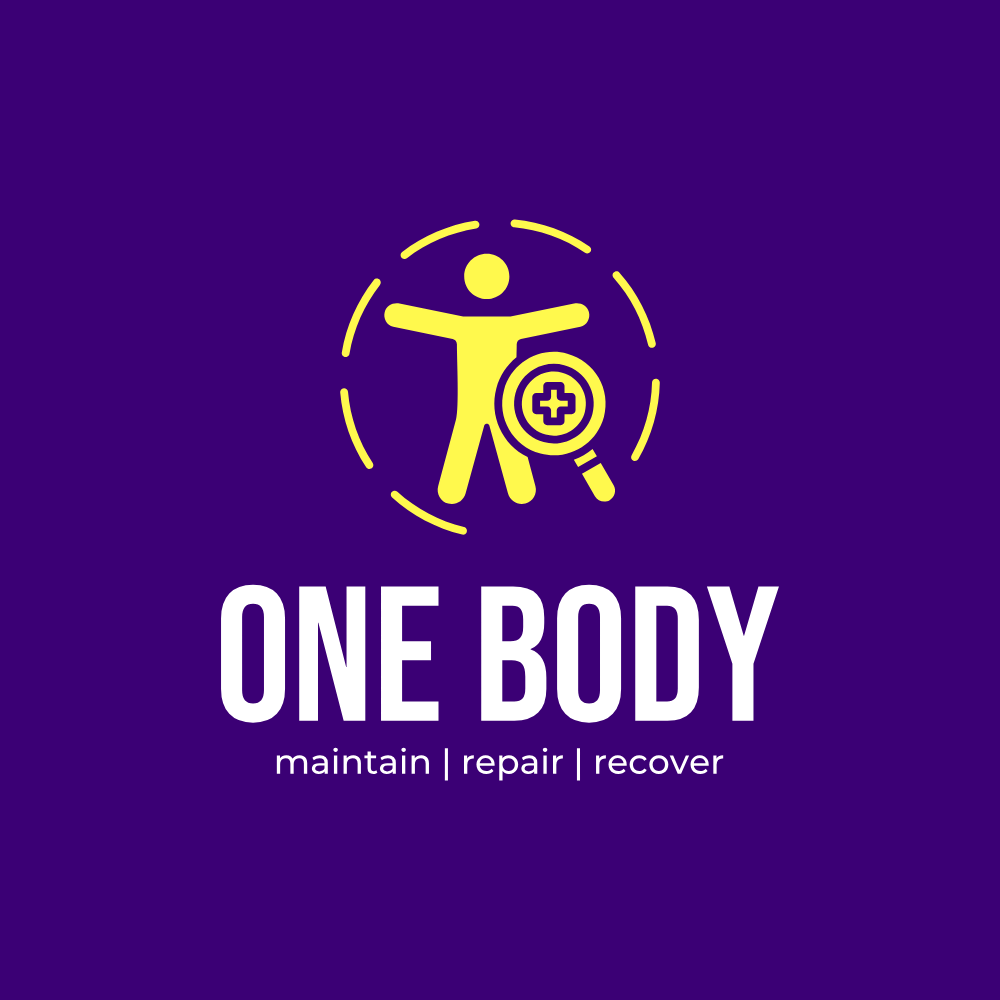The Thoracic (Mid) Spine: The Hidden Mystery of Back Pain
By One Body | Treating the Real Root of Your Pain
When we think about back pain, we usually blame the neck or lower back. But what if the real culprit is the mid-back — your thoracic spine?
Let me tell you something shocking:
💥 Every single client I see has stiffness in their thoracic spine.
And most of them don’t even know it.
Function: Rotation and extension of the upper back
Common Issues: Stiffness, limited rotation, slouched posture
Key Movements:
Seated/standing spinal twist
Thoracic extension over foam roller or mat roll
Cat-cow (especially focusing on upper spine)
Thread-the-needle
📍 What is the Thoracic Spine?
The thoracic spine is the middle section of your spine — from the base of your neck to just above your lower back. It’s made up of 12 vertebrae (T1–T12) and it connects to your rib cage, making it a major player in both movement and stability.
❗ Why This Area Matters — A LOT
Despite being central to how we move, it’s also the most neglected and hardest to stretch or target effectively.
And yet, this region plays a role in almost every major issue I treat:
🔹 Neck pain
🔹 Shoulder dysfunction
🔹 Lower back pain
🔹 Hip tightness
🔹 Postural fatigue and tension headaches
🔹 Breathing restrictions
🧱 Why Is the Thoracic Spine So Stiff?
It’s not your fault entirely — it’s modern life:
🚗 Poor driving posture
🧑💻 Terrible desk set-ups
🛏️ Unsupportive mattresses
📱 Hours staring at phones
💦 Dehydration — spinal discs dry out
🏋️♂️ High-load sports (rugby, weightlifting)
💼 Repetitive forward-leaning occupations
When the thoracic spine becomes stiff, the body compensates — and that’s where pain starts elsewhere.
📉 Shocking Posture Facts:
📱 For every 1 inch the head leans forward, it adds 10–12 lbs of pressure to your neck and spine
📱 Looking down at a phone at a 60° angle puts 60 lbs of pressure on your upper spine
🧍 Most people spend 10+ hours a day in a poor posture position without realising the load they’re placing through their thoracic region
🔍 Common Issues in This Area:
Thoracic stiffness limiting overhead reach and rotation
Tight chest muscles (pectorals) pulling shoulders and spine forward
Rib dysfunction causing sharp, catching pain when breathing or twisting
Upper back tension from overtraining in sport or gym (rugby, rowing, CrossFit)
Breathing restriction from rib compression
Referred pain into the lower back, shoulders, or even the hips
Chronic slouching leading to kyphosis (hump-back posture)
Spinal disc dehydration from poor hydration and movement
📦 Why We All Miss It
The thoracic spine is not easy to self-treat. Unlike the neck or lower back, there aren’t many intuitive ways to release this area.
People:
🔸 Don’t stretch their thoracic region
🔸 Don’t even know it exists as a source of pain
🔸 Rarely breathe deeply or rotate fully during the day
🔸 Assume their shoulder or lower back pain is isolated — when it’s not
🧘♀️ How to Show It Some Love
✅ Regular thoracic mobility drills (foam rolling, cat-cow, rotation stretches)
✅ Manual therapy to mobilise and decompress tight areas
✅ Postural awareness and ergonomic work set-ups
✅ Deep breathing to engage thoracic expansion
✅ Proper hydration to keep the discs plump and healthy
✅ Chest opening stretches to counteract the “hunch”
💬 Final Word: Don’t Overlook the Middle
The thoracic spine might be in the middle, but it’s central to everything.
If you’ve been chasing shoulder pain, neck tightness, or lower back strain for months with no lasting relief — this is the region to look at.
💡 Treatment and mobility work in this area can unlock your entire posture, relieve years of tension, and bring back movement you forgot you even had.
📅 Want a full thoracic mobility and pain assessment?
Book with One Body today — we treat the spine, not just the symptoms.
Let’s unlock your mid-back and restore your full movement potential.

